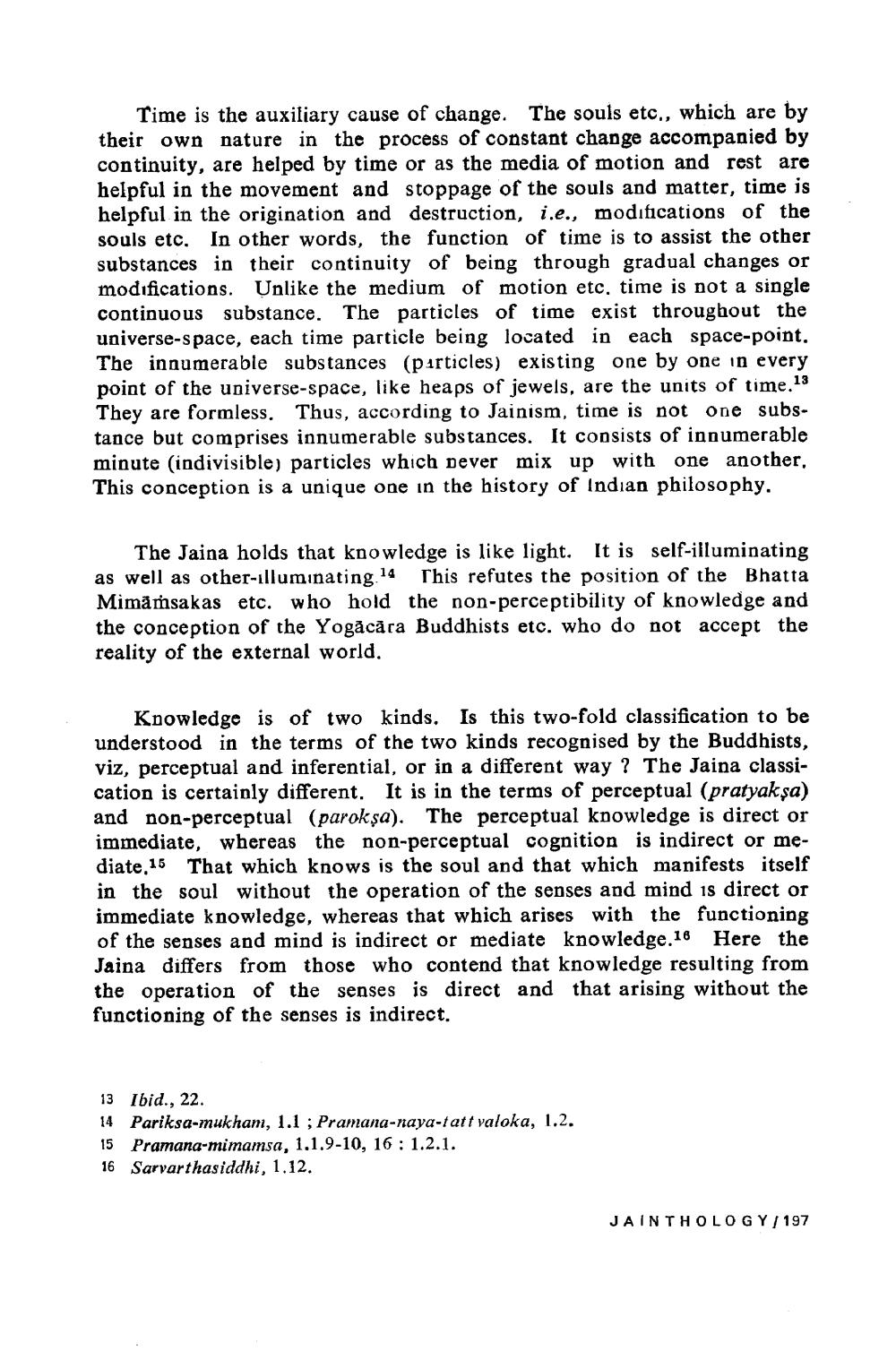________________
Time is the auxiliary cause of change. The souls etc., which are by their own nature in the process of constant change accompanied by continuity, are helped by time or as the media of motion and rest are helpful in the movement and stoppage of the souls and matter, time is helpful in the origination and destruction, i.e., modifications of the souls etc. In other words, the function of time is to assist the other substances in their continuity of being through gradual changes or modifications. Unlike the medium of motion etc. time is not a single continuous substance. The particles of time exist throughout the universe-space, each time particle being located in each space-point. The innumerable substances (particles) existing one by one in every point of the universe-space, like heaps of jewels, are the units of time.13 They are formless. Thus, according to Jainism, time is not one substance but comprises innumerable substances. It consists of innumerable minute (indivisible) particles which never mix up with one another, This conception is a unique one in the history of Indian philosophy.
The Jaina holds that knowledge is like light. It is self-illuminating as well as other-illuminating 14 This refutes the position of the Bhatta Mimāmsakas etc. who hold the non-perceptibility of knowledge and the conception of the Yogacara Buddhists etc. who do not accept the reality of the external world.
Knowledge is of two kinds. Is this two-fold classification to be understood in the terms of the two kinds recognised by the Buddhists, viz, perceptual and inferential, or in a different way? The Jaina classication is certainly different. It is in the terms of perceptual (pratyakşa) and non-perceptual (paroksa). The perceptual knowledge is direct or immediate, whereas the non-perceptual cognition is indirect or mediate.15 That which knows is the soul and that which manifests itself in the soul without the operation of the senses and mind is direct or immediate knowledge, whereas that which arises with the functioning of the senses and mind is indirect or mediate knowledge.18 Here the Jaina differs from those who contend that knowledge resulting from the operation of the senses is direct and that arising without the functioning of the senses is indirect.
13 Ibid., 22.
14 Pariksa-mukham, 1.1; Pramana-naya-tatt valoka, 1.2.
15 Pramana-mimamsa, 1.1.9-10, 16: 1.2.1.
16 Sarvarthasiddhi, 1.12.
JAINTHOLOGY/197




